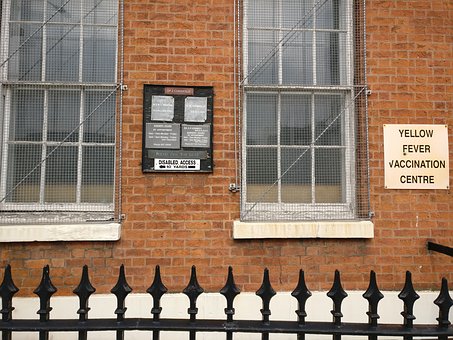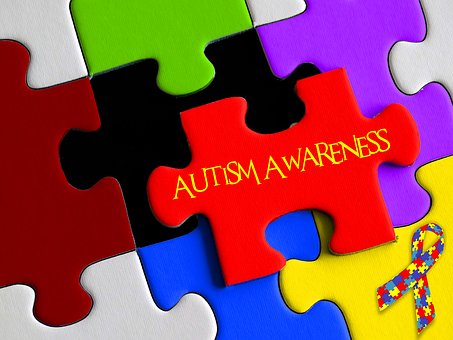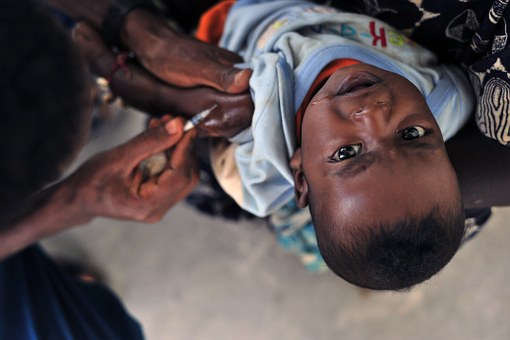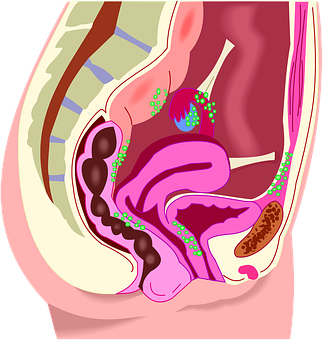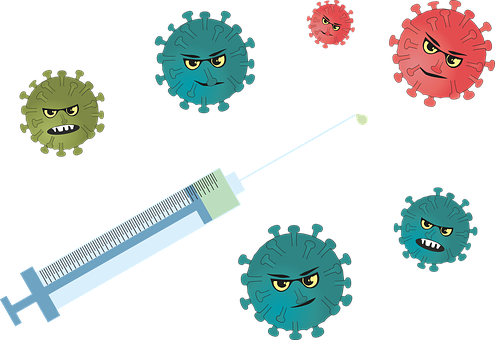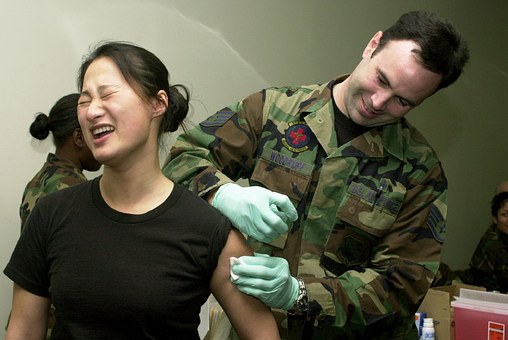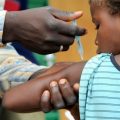Globally, public health officials and other health personnel especially in the United States, Nigeria and many countries in Northern African and the Middle East have been combating misconceptions rumors and outright propagation of falsehood about vaccine safety and importance. During the cause of these “war”, they have recorded had mixed success. Despite the fact that numerous scientific studies and available data have shown no evidence to support the notion that vaccines cause autism, infertility and other chronic conditions, a growing number of parents and individuals are refusing to vaccinate their children or wards.Scientific Findings have shown that falling immunization rates in the United States and many countries of the world including Nigeria are linked to the recent resurgence of vaccine-preventable diseases. California saw a record breaking 9,120 cases of whooping cough in 2010 alone, more than any year since 1914 when the whopping cough vaccine was introduced. The Center for Disease Control and prevention (CDC) warns that events such as the California experience might become more frequent, complex and harder to control if vaccination rates continue to fall at the current rate. Nigeria on its part saw the return of the wild polio virus complicating efforts to eradicate the disease in Africa. SEE: National Programme on Immunization (NPI) schedule
Fears over vaccine safety and cold chain maintenance are not unfounded especially in Africa and other developing nations. However, in the United States and most of the developed world, cold chain issues is not a challenge. The CDC and other National health institutions around the world recommends that children receive up to 14 vaccine inoculations by age of six. Many parents however reject these vaccines or deliberately shun immunization schedules because of the thought that many of these vaccines were developed over the last two decades and as such they are worried about the long-term side effects and potential risk of the vaccines. Available research and scientific literature however, shows that most of our biggest fears and worries about vaccinations and its imagined consequences are unfounded. In this article we have Out-lined the 10 major vaccine myths and the scientific research that shows that you don’t need to worry about them anymore:
Myths About Vaccines 1: Vaccines cause autism.
The fear that vaccines increase risk of developing autism emanated from a 1997 study published by a British Surgeon Andrew Wakefield. The article which was published in one of the world’s prestigious medical journal The Lancet, suggested that the measles, mumps, rubella (MMR) vaccine was increasing the risk of autism in British children.
The study has since been completely discredited due to very serious procedural errors, ethical violations and undisclosed financial conflicts of interest, Wakefield in the process lost his medical license and the study which was referred to as an elaborate fraud has since been retracted and taken down from The Lancet.Nevertheless, researchers took the hypothesis seriously and carried out several major studies on the subject matter and none of the studies found any link between any vaccine and the tendency or likelihood of developing autism. New studies have now identified symptoms of autism in children long before they receive the MMR vaccine. And even more recent research provides evidence that autism develops in utero, well before a baby is born or receives any vaccinations.
Myths About Vaccines 2: Infant immune systems can’t handle so many vaccines.
Although the immune system of an Infant is not fully developed, it is actually stronger than what most people think. On the strength of number of antibodies present in the blood, a baby would theoretically be able to respond to about 10,000 vaccines at one time. Even if all 14 scheduled vaccines were administered at the same time, it would only use up to around 0.1 % of a baby’s immune system capability. Scientists and medical researchers believe this ability is purely theoretical as under normal circumstances the immune system could never truly be overwhelmed due to the fact that the cells in the system are constantly being replenished. In reality, everyday babies are constantly exposed to countless number of bacteria, viruses and other microorganisms and vaccines are negligible in comparison.
Myths About Vaccines 3: Natural immunity is better than vaccine-acquired immunity.
This statement is correct however, it is tantamount to suicide. The major dangers of waiting to get infected in order to develop immunity far outweighs the relative benefits. Sometimes the impact of the disease on the body could be fatal and such individuals never live to enjoy the immunity they would have acquired due to preventable loss of lives. For instance, by contracting measles you would face a 1 in 500 chance of death as a result of your symptoms alone, this in contrast with the number of people who have had severe allergic reactions from the Measles Mumps and Rubella vaccine, which is less than 1 in 1,000,000.
Myths About Vaccines 4: Vaccines contain unsafe toxins.
It is true that certain chemicals such as formaldehyde, mercury and aluminum are used in the production of certain vaccines. It is also true that these chemicals at certain concentration are toxic to the human body, what is also true is that there are only trace or negligible amounts of these chemicals in FDA approved vaccines. According to the Food and Drug Administration and the Center for Disease Control and prevention, there is no scientific evidence or data to suggest that the low levels of Formaldehyde, mercury or aluminum in vaccines can be harmful. In fact formaldehyde is produced at higher volumes in our bodies by our own metabolic systems.
Myths About Vaccines 5: Vaccines Causes Infertility and Sterility
This is the major myth especially in Northern Africa, the Middle East and Northern Nigeria. There is no evidence scientific or otherwise to suggest that vaccines cause sterility or infertility. Even the human papillomavirus (HPV) vaccine that has been a subject of intense debate does not cause fertility problems and may in fact actually increase the chances of some women getting pregnant according to new research conducted in the United States. The Boston study lays to rest the myth that vaccines or HPV vaccines causes infertility whether now or in the future.
Myths About Vaccines 6: Better hygiene and sanitation are actually responsible for decreased infections, not vaccines.
A lot of factors (Sanitation, Nutrition, Antibiotics etc.) played critical roles in reducing the disease burden globally and vaccines can’t take all the credit for reducing the rates of infectious disease worldwide. However, when a critical analyses of the contribution of these factors to the reduction of infectious diseases is carried out, the principal role of vaccines in reducing infectious diseases cannot be denied.
A typical example of the impact of vaccine can be clearly seen in the measles pattern in the United States. Before the introduction of the first measles vaccine in 1963, rates of infection had been holding steady at around 400,000 cases a year while sanitation and hygiene habits remain static or did not change much over the following decade, the rate of measles infections dropped drastically as a result of the introduction of the vaccine, as only about 25,000 cases were recorded by 1970. Another example according to the CDC is Hibs disease, available data shows that the incidence rate for this condition nosedived from 20,000 in 1990 to around 1,500 by 1993, following the introduction of the vaccine.
Myths About Vaccines 7: Vaccines aren’t worth the risk.
Despite the persistent concerns by some parents, children have been successfully vaccinated for decades and there has never been a single credible study linking vaccines to long term health conditions or other side effect with major long term health consequences.The incident of death as a result of allergic reactions or severe side effects are so rare they can’t even truly be calculated. Between 1990 and 1992 only one death arising from vaccine was reported to the CDC. The overall incidence rate of severe allergic reaction to vaccines is around one case for every one or two million injections.
Myths About Vaccines 8: Vaccines can infect my child with the disease it’s trying to prevent.
Vaccines can produce mild symptoms similar to those of the disease they are protecting against. A common misconception among proponents of this myth is that these symptoms signals infection. Not all persons show symptoms and in the small percentage (less than 1 in one million cases) where these symptoms do occur, the vaccine recipient’s immune system is responding to the vaccine and not the disease itself.
Available data shows that there is only one recorded case where a vaccine was reported to have caused disease. The vaccine implicated was the Oral Polio Vaccine (OPV) which is no longer used in the U.S. But is still used in most developing countries including Nigeria
Myths About Vaccines 9: We don’t need to vaccinate because infection rates are already so low in the United States.
Community or “herd immunity,” is acquired mainly by vaccination and so long as a large percentage of people are immunized in any population, even the un-immunized minority will be protected. But what happens if an increasing number of people are not immunized? They expose themselves, their children and greater population to collective danger by opening up opportunities for bacteria and viruses to establish themselves and spread.
It is also important to note that herd immunity only covers for when the individual is within the herd. With international travel becoming more popular, once outside the zone of cover the immunity no longer holds for the unvaccinated
Myths About Vaccines 10: For Best Results wait until children are older before Giving them vaccines.
This is another myth being held unto by some parents. Immunization schedules are designed to protect the most vulnerable patients (Children) from disease. Waiting till the child is older rubbishes the whole essence of the vaccination and exposes the child to great risk. In a single year Wisconsin recorded 300 whooping cough cases all involving children under age 1. According to reports, 177 of these children were less than 6 months old. Of these figure, half were hospitalized and three died. All these for a disease that should have been relegated to the dustbin of history but remain to torment our children due to the actions of a few of us.
Impact of Vaccine Rejection in Nigeria
Following the spread of falsehood that the west intends to control the Muslim population of the Northern Nigeria by administering vaccines laced with birth control, majority of the Muslim population in Northern Nigeria rejected immunization despite concerted efforts by traditional rulers, public health officials and the government, some parents refused to grant access to their children for immunization. The rise of the Boko Haram group also exacerbated the vaccine crisis in Nigeria following their persistent attacks on health officials on immunization duties .This led to a situation where a large portion of the children population especially in the rural areas were left un-immunized leading to the return of the wild polio virus which has again doused the hope of eradicating polio in Africa.
Vaccines are one of the great success stories of modern medicine. Before the discovery of vaccines, life expectancy in most places were very low, epidemics were a constant threat and children most times stood no chance due to the brutal effect of the pathogens. The advent of vaccines led to the major suppression of diseases such as measles, smallpox, whooping cough, polio and rubella. For generations, vaccines have prevented millions of death and continues to do so throughout the nooks and crannies of the world where its impact is recognized and its potency is appreciated.See: Meningitis vaccine in Nigeria
“So it’s an absolute lie that has killed thousands of kids. Because the mothers who heard that lie, many of them didn’t have their kids take either pertussis or measles vaccine, and their children are dead today. And so the people who go and engage in those anti-vaccine efforts — you know, they, they kill children. It’s a very sad thing, because these vaccines are important.”
― Bill Gates

